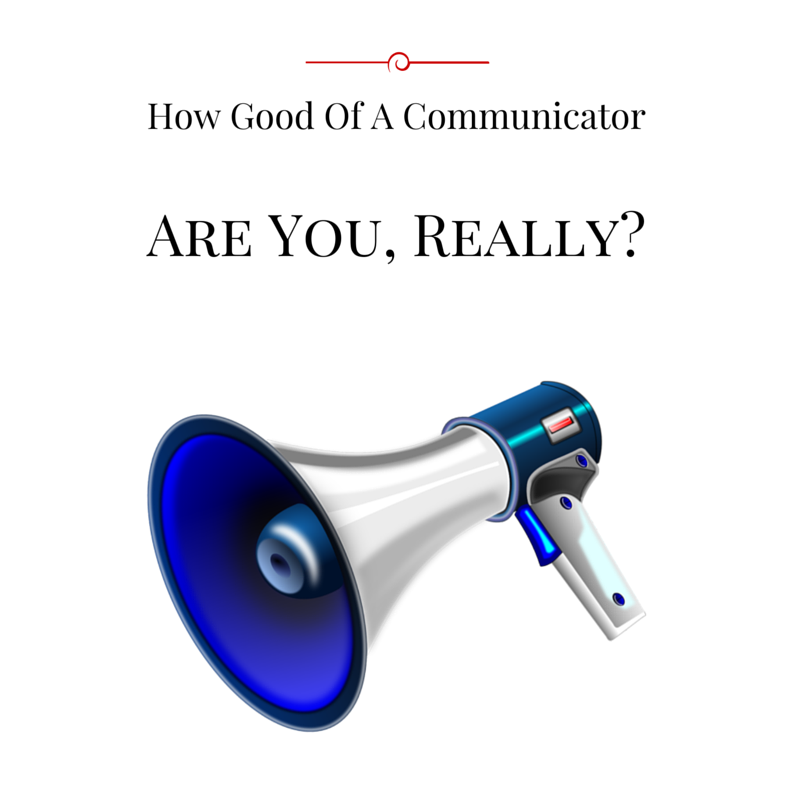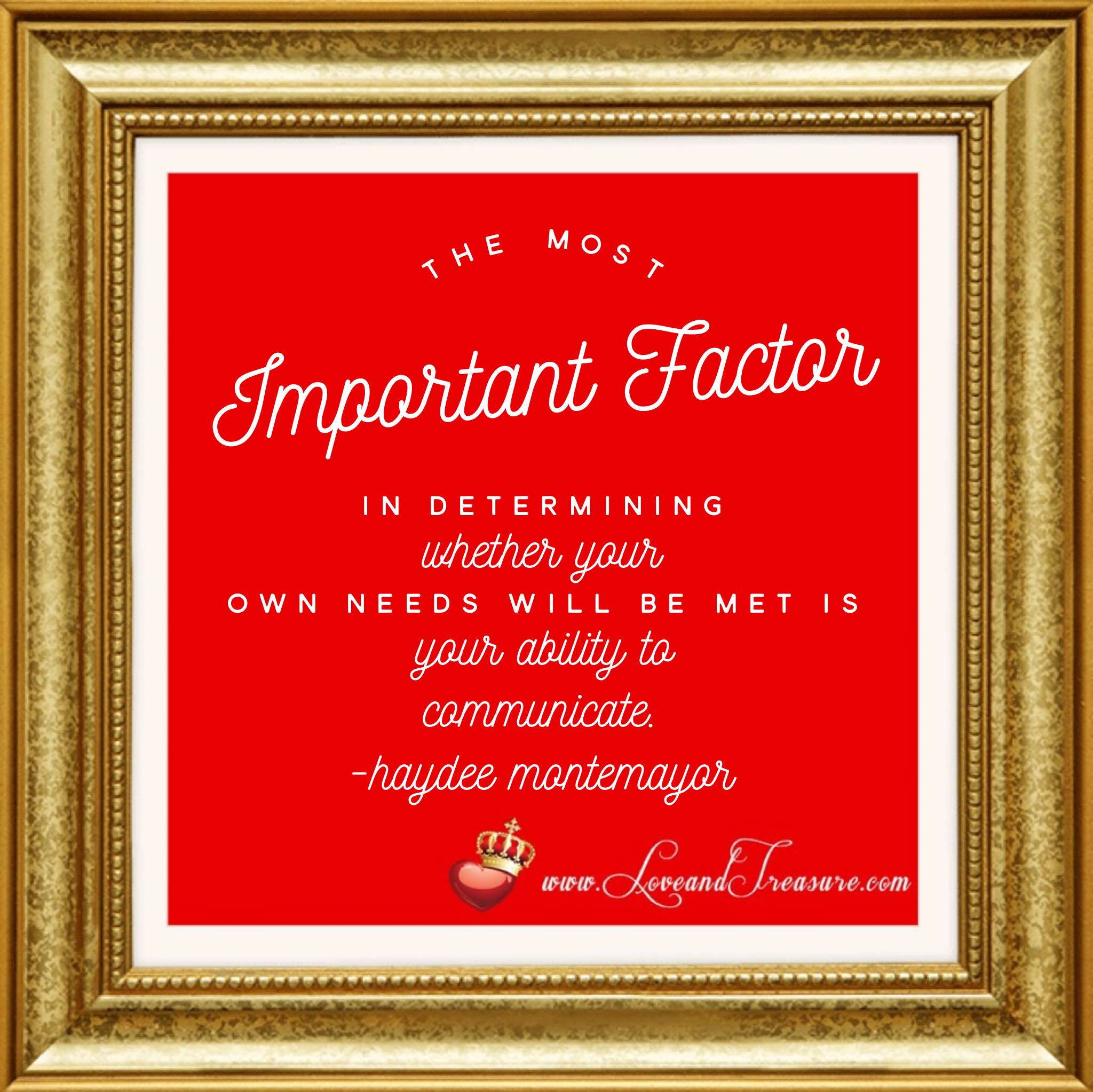In the last post, we explored how your experience with friendships impacts the way you view friendships.
I said that it’s hard to not take things personally when you have friendships that don’t seem like friendships.
Essentially, there are three approaches you can take when your friendships are not what you’d like them to be:
1. Give up on the friendship and drift apart slowly OR cold turkey. (By the way, it’s sane to admit to yourself that there are some friendships that completed their course or that will complete their course. You are not meant to be friends with everybody forever).
2. Leave the friendship as it is and continue to be unsatisfied. (Sadly, that’s what most of us do).
3. Do something about it. What is that something? Come on, you know what it is, right? COMMUNICATE!
I know, I know! You’re probably thinking that you are already communicating or that communicating is hard.
And you’re right on both accounts! You are communicating, but it’s probably inefficiently. Communicating your true feelings and needs is what it takes. And yes, that’s hard! Super hard, actually! Especially since we were never taught how to communicate and communication is not a subject that we started learning since kindergarten (or earlier), although it should have been.
Why Is Communication So Important?
Well, think about it. Think about every time someone has let you down. The reason they let you down pretty much boils to four things:
1. Because of something they said
2. Because of something they did
3. Because of something they didn’t say
4. Because of something they didn’t do
Could the outcome had been different if you had stated your expectations before they let you down?
Of course!
This is largely based on the ask and you receive premise. If you identify your needs and voice what those needs are, the likelihood of them coming true goes waaaay up.
Sadly, most people have a tendency to assume that the people around them can read their mind.
Communicating is soooo simple, but it’s often overlooked. This is largely in part because when you were little, and you cried, mom, dad or hopefully both, tried to figure out what exactly it was that you needed and provided that for you, whether it was milk, comfort, a diaper change or cuddles.
So now, we assume that because someone knows us, and because we think we’re good at identifying the needs off others that other people should be able to “tell”… “figure out” or “just know” what we need based on our interactions with them.
We almost immediately make “love” a part of this conflict. We say “If you really loved me, you should give me what you KNOW I want without me having to say it.”
We expect them to read our mind… without even asking them to read our mind (not that they could, of course). If we’re sad, mad, anxious or worried, which are typically feelings that we feel when we’re the most shut down, we expect someone to rescue us from our misery. And if they don’t, we simply become MORE miserable. In our mind, it toooootally makes sense!
Stop Yourself Before You Wreck Yourself
Given that it’s really frustrating to need something, expect it from someone, not receive it and feel worse and repeat this cycle over and over, our natural tendencies are often to judge others for not giving us what we need. We label others.
We say they’re insensitive, uncaring, unloving, uncommitted, mean, rude, selfish and the list goes on and on and on.
Yet, we hardly remember that when we point our finger at others when we’re trying to blame them and justify how inconsiderate they are, that three fingers are pointing back at us.
It hardly ever occurs to us that WE are the reason why our needs aren’t met.
This happens to me too, and if you read my last post or if you go and read it right now… I’ll be honest and admit that I, too, have made this mistake of not communicating my needs. Why? In part because I thought that if my friends cared about me that they would contact me and value me. And secondly, because up until now, I haven’t had the guts to say what I want and need in friendships. In my mind, I’ve thought that I should get what my friends genuinely feel like giving me. I always think that these should be nice things…nice actions, frequent check-ins, genuine concern, etc. But in reality, these friends of mine may are genuinely giving me what they felt like giving me… it’s just that I’m not so fond of what I’ve received. But that’s my issue… not theirs.
Face It, People Won’t Read Your Mind 100% Of The Time
No matter what your personality is like…if you’re shy, gregarious or blunt….most of us hold back from saying the most important thing we need to say… and that is how we are authentically feeling.
Being authentically brave with your feelings requires that you are:
- In tune with your emotions, which is already difficult
- Not scared to go within
- Savvy enough to know what emotion it is
- Mature enough to be able to see the role you played in feeling the way you do
- Your ability to share what you’re feeling authentically and tactfully
Speak Up For Yourself
Ironically, when it comes to sharing our feelings. We are not direct… but we are certainly accusatory. We say things such as “I feel rejected, unappreciated, neglected, abandoned, unheard, unloved”… but when we do this… we are actually blaming the other person.
We are implicitly saying that if the other person appreciated us, heard us, loved us enough that we would feel better.
You Gotta Change Your Dialogue
According to psychologist Marshall Rosenberg, instead of using words that accuse others, there are several emotions that you should be very familiar with and use often to communicate your internal state.
They are:
Anxious
Bitter
Confused
Discouraged
Empty
Frustrated
Guilty
Helpless
Invisible
Jealous
Lonely
Mad
Nauseated
Obstinate
Pessimistic
Queasy
Resentful
Sorry
Tired
Uneasy
Withdrawn
As you can see, these emotions go far beyond the typical responses that we give when someone asks us how we feel which are usually: good, bad, happy, sad or the infamous (wait for it, wait for it) “fine.”
And don’t get me wrong, fine is fine as long as everything IS fine, but things are either usually worse than fine, and they’re much better than fine (although we hardly ever take the time to truly notice and truly count our blessings).
This does not mean that everybody needs to know the details of your life, but the people who really matter to you, do.
The most important thing is that this is just a list to help you get started in expressing your needs. It’s not all-encompassing, but it’ll provide you with a framework for stating how you truly feel.
Who Can Benefit From Your Improved Communication?
You, because you’ll know that you’re doing part of the work necessary to have great relationships (because listening and doing things for others is also part of the equation).
Your friends, your family, and your acquaintances because they’ll know what to do to provide you with what you need.
Your children because aside from knowing what you’re asking of them, the clear way that you’re communicating will also teach them how to communicate with you and with others to get their needs met.
Why Is Communicating Better Important?
It is important because:
- It helps us realize that maybe the reason why we’re taking the lack of interest that we’re seeing from others personally is because we are communicating impersonally and so generally that they probably don’t know how to please us
- As much as we would want to, people aren’t mind readers
- Body language is a skill that not many people are good at and even if they notice that you’re ____ (blank), it doesn’t mean that they will have the tools to make things right, right away
- The fact that someone has known you for years is not a guarantee and not on obligation on their part to mend your heart.
As you can see, even with this greater understanding of communication, actually communicating is hard. It requires investing in yourself to get your needs met and investing in others to get their needs met when they communicate with you.
It’s like a medical diagnosis. Unless you clearly articulate the symptoms of what’s going on in your mind, heart and spirit, the likelihood of it being fixed goes way down.
You are your best advocate.
Will You Be A Pest If You Start To Express Your Feelings?
No, as long as you don’t overdo it and expect the other person to fix what’s wrong all the time.
You need to remember:
- That any relationship is a two-way street and that you should support them when they’re feeling bad.
- That you should share your feelings with tact.
- That you should avoid drama. It’s about expression not about theatrics.
- That you try to convey your contribution for feeling as bad as you do. Not everything is being done to you. You play a role in your feelings and take actions that result in them being what they are.
A Gift To Help You Communicate Better
In order to help you remember that relationships will not get better on their own if we keep on thinking that our friends and loved ones are mind readers, I have created a Love and Treasure Sample Feeling Words PDF with these emotions so that you can have them handy and use them more often.
The PDF has two wallet-sized cards one of which you can keep in your wallet and you can share with others.
Now It’s Your Turn
- Which of these emotions are you most comfortable with sharing?
- Which of these emotions are you most uncomfortable sharing?
Let me know in the comments below.
The Want/ Need Series
If you liked this post, feel free to visit the others in the series designed to teach you how to navigate the difficult waters of assuming responsibility for what you want, what you need and how to communicate those wants and needs.
1. What Do You Mean Don’t Take Anything Personally?
2. How Good Of A Communicator Are You Really?
3. How Do We Get In The Way Of What We Want? And What To Do About It
4. What Do You Need That You’re Not Getting? – And What To Do About It




